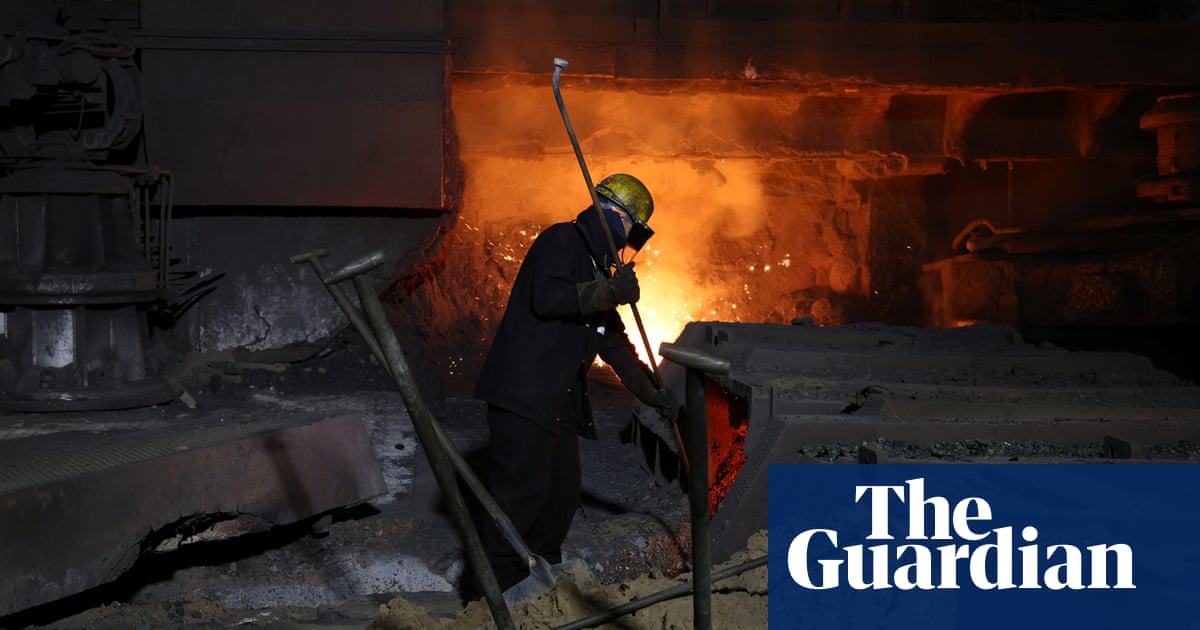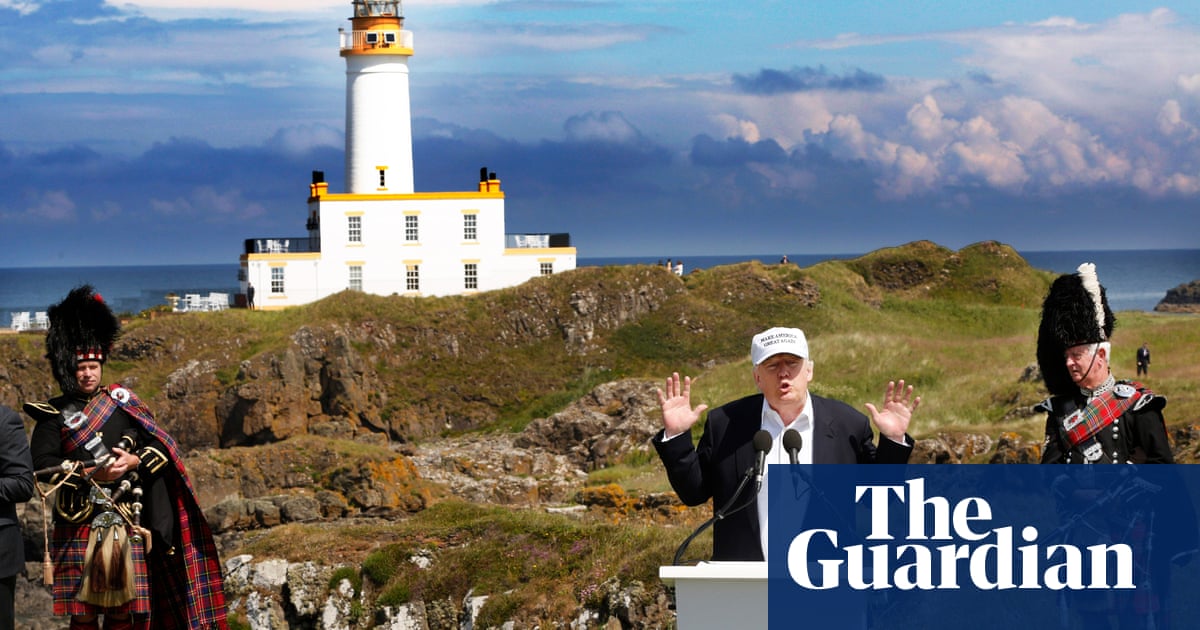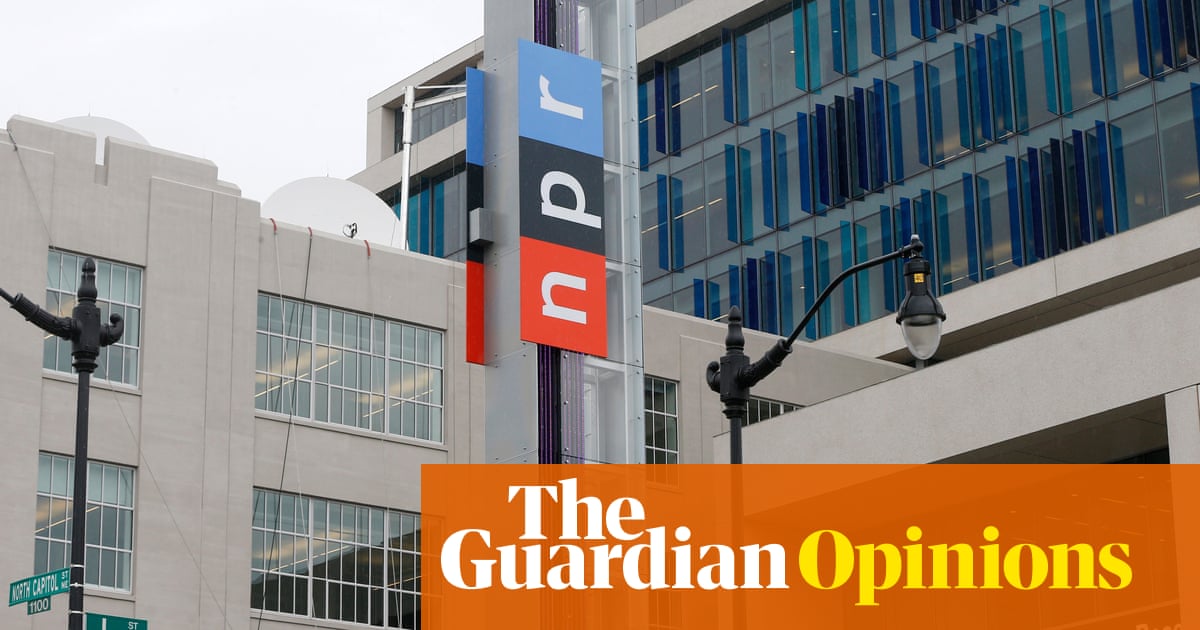Carmaker shares slide after Trump tariff announcement
Shares in Asia-Pacific car companies have fallen after Donald Trump announced plans to impose sweeping 25% tariffs on cars from overseas last night.
The latest eruption in the Trump Trade Wars has hit investor confidence, and angered US trading partners around the world.
In Japan, shares in Toyota Motor have lost 2.04%, Honda Motor fell fell 2.48% while Nissan Motor slipped 1.68% – which all helped to pull the Nikkei index down 0.6% today.
In South Korea, Hyundai Motor’s shares have fallen over 4% – just days after it tried to placate Trump by announcing a $21bn investment in the US.
The European Commission president, Ursula von der Leyen, has described Trump’s move as “bad for businesses, worse for consumers”.
Trump has also threatened further tariffs if the EU worked with Canada “in order to do economic harm to the USA”, which may fuel fears of a tit-for-tat trade conflict that would hurt the global economy.
Writing on his own social media platform, Truth Social, he said if they did so, “large scale Tariffs, far larger than currently planned, will be placed on them both in order to protect the best friend that each of those two countries has ever had!”
Key events Show key events only Please turn on JavaScript to use this feature
UK-based manufacturers might be able to pass on the impact of tariffs onto their wealthy customers, which would cushion the impact of the latest levies.
My colleague Jasper Jolly looked at this issue in January, and reported:
About 10% of UK car exports go to the US, although the majority go to the EU, according to the Society of Motor Manufacturers and Traders, a lobby group.
One small silver lining for the UK may be that a large number of those exports from companies such as the Jaguar and Land Rover owner JLR, the BMW-owned Rolls-Royce or the Volkswagen-owned Bentley, are classed as luxury vehicles, with prices that can start at £100,000 and rise to multiples of that. Those companies should be able to pass on the cost of tariffs to wealthier customers without denting sales.
BCC: Tariffs will sap business confidence and hurt UK manufacturers
The British Chambers of Commerce has warned that the new 25% tariff on car imports to the US will hurt business confidence.
The BCC says the impact on the UK car sector “cannot be overstated”, given the importance of the US market for British manufacturers.
William Bain, BCC head of trade policy, explains:
“Businesses were already looking with trepidation towards next week’s planned reciprocal tariffs before this fresh upheaval was announced.
“Around half of the cars purchased in the US are imported so this will pass through into much higher costs for US consumers. If fully extended to all components it will affect supply chains too.
“The impact of this on the UK car industry cannot be overstated. Cars are the UK’s biggest goods export to the US, with £6.4bn in sales in 2023, led by iconic manufacturers such as Aston Martin, Jaguar, and Land Rover.
“Piling these tariffs on top of the others already expected on 2 April, will sap business confidence and add further uncertainty for both UK and US firms.
“We urge the UK Government and the US Administration to continue intensive dialogue over the coming days and weeks to reach a mutually beneficial agreement on technology and trade.
“This needs to provide certainty for business and consumers alike on the future tariff landscape and remove unnecessary levies already in place.”
Kathleen Brooks, research director at XTB, reports that tariffs are “dominating market sentiment”, as investors calculate the impact of the trade dispute:
European stocks have opened sharply lower after President Trump announced a 25% levy on imports of cars and car parts coming into the US. This news has had an immediate effect on share prices, the US imports 8 million cars a year and untold car parts, which equates to $240bn in trade.
Unsurprisingly, the biggest decliners on the Eurostoxx index include Ferrari, Volkswagen, BMW and Mercedez Benz Group.
There’s also plenty of speculation today that Rachel Reeves may need to make tax rises in the autumn statement, if the UK’s fiscal position worsens.
Goldman Sachs has warned there are “further fiscal pressures ahead” that could squeeze the chancellor’s headroom against her fiscal targets.
Goldman analyst James Moberly told clients:
We think that the OBR will ultimately downgrade its trend growth forecast by around 0.2pp, possibly in the Autumn, which could reduce headroom by around £14bn, and we expect increasing pressure for the government to raise defence spending above 2.5% in the current Parliament.
If these pressures do materialise, we continue to think that tax changes are the most likely response. That said, we do think that lower interest rates could ease some of the pressure on the fiscal position as we expect the Bank of England to cut further than the market expects.
Richard Hughes, head of the independent Office for Budget Responsibility, has warned that the car tariffs announced by Donald Trump will eat into Rachel Reeves’s fiscal headroom.
Speaking to Radio 4’s Today programme, Hughes also flagged that a full-blown global trade war could eliminate that headroom altogether.
He explained:
“This represents the crystallisation of one of the risks that we highlighted around our central forecast, which was one of escalating global trade tensions.”
“The UK exports, in terms of goods to the US, around 2% of GDP. Car exports are about 10% of that.
“So that’s affecting directly UK goods exports of around 0.2% of GDP. So what Trump’s announced overnight is not the whole of that worst-case scenario, but it’s elements of it, and it’s the beginning of that risk side.”
The OBR presented three trade war scenarios yesterday – the worst, where the UK and US hit each other with reciprocal tariffs, showed 1% would be wiped off UK GDP.

We’re not there yet, though, with Reeves arguing against escalating the trade war this morning.

Sarah Butler
Next has rung up £1bn in annual profits for the first time but warned of growing risks to the UK economy, saying big business could not afford to finance “excessive regulation” and government debt.
The retailer said pre-tax profits rose 10% to just over £1bn, before one-off items including a £15m pension charge, in the year to January after sales rose 8.2% to £6.3bn, led by strong overseas growth and sales of other brands.
Simon Wolfson, the chief executive of Next, said he now expected to make £1.06bn next year, £20m more than previously expected, as he said the first eight weeks of the new financial year had been “ahead of our expectations”.
Wolfson, who is a Conservative peer, said: “We are as positive about the company today as we were [a year ago], albeit in an environment where the risks to the wider UK economy are growing.
Next’s shares have jumped over 5%, to the top of the FTSE 100 leaderboard.
Britain’s car sector is calling for more government support, after reporting another fall in output.
UK car and commercial vehicle production declined by 11.6% in February, to 82,178 units, according to new data from the Society of Motor Manufacturers and Traders (SMMT).
The SMMT blames a range of factors, including “soft markets at home and overseas, model changeovers and plant restructuring”.
Mike Hawes, SMMT chief executive, said,
“These are worrying times for UK vehicle makers with car production falling for 12 months in a row, rising trade tensions and weak demand.
The market transition is not keeping pace with ambition and, while the industry can deliver growth – and green growth at that – it needs policies to deliver that reality. It was disappointing, therefore, to hear a Spring Statement that did nothing to alleviate the pressure on manufacturers and, moreover, confirms the introduction next month of additional fiscal measures which will actually dissuade consumers from investing.
Without substantive regulatory easements our manufacturing viability remains at risk and the UK’s transition to zero emission mobility under threat.”
And on the new auto tariffs, Hawes has urged the UK and US governments to “come together immediately and strike a deal that works for all”.
European stock markets fall amid tariff gloom
European stock markets are sea of red in early trading, dragged down by the auto sector.
Germany’s DAX index has dropped by 1.6%, with Mercedes-Benz (now -5.5%) and Porsche (-4.8%) leading the fallers.
France’s CAC has lost 1.1%, dragged down by Stellantis (now -6%).
The gloomy mood has also reached London, where the FTSE 100 index (which doesn’t contain any carmaker) is down 0.6%, or 52 points, at 8637 points.
Mohit Kumar of investment bank Jefferies explains:
Tariff concerns returned to the market with Trump imposing 25% tariffs on Auto imports and suggesting reciprocal tariffs to come.
Comments from trading partners overnight suggest potential counter tariffs will be likely. Tech stocks were under pressure on reports that China would use energy efficiency rules to limit use of high-end imported chips.
European car giant Stellantis’s shares have fallen over 5% in early trading.
BMW, VW, Mercedes-Benz shares all sliding
German carmakers are being rocked by the announcement of new auto tariffs at the US border too.
Shares are being hit in early trading in Frankfurt, where BMW are down 4.2%, Volkswagen has lost 3.3%, and Mercedes-Benz has dropped 4.1%
Jochen Stanzl, Chief Market Analyst at CMC Markets, says Donald Trump’s new tariffs will “significantly worsen the situation for German car manufacturers”, writing:
The European Union is now tasked with negotiating preferences, whereby only the portion of each vehicle not manufactured in the U.S. will be subject to the tariff. However, not all manufacturers will succeed equally in these negotiations, and it’s quite possible that certain vehicles may no longer be available in the U.S. market due to lost competitiveness. Further complicating matters is the looming implementation of tariffs on auto parts in May, which will only exacerbate the challenges faced by automakers.
The new tariffs will significantly worsen the situation for German car manufacturers, whose profits have already taken a substantial hit. The U.S. is a crucial trading partner; for instance, 80% of Volkswagen’s car sales in the U.S. are imports, while for Mercedes-Benz, this figure exceeds 60%, and for BMW, it is about 50%. One can only hope that Trump will use these tariffs as leverage to negotiate a better deal.
Shares in UK luxury carmaker Aston Martin have tumbled over 6% at the start of trading in London, to what looks to be a record low.
Reeves: trade wars are no good for anyone
Rachel Reeves has declared that the UK is not planning “at the moment” to introduce retaliatory tariffs on the US, and does not want to escalate a trade war with Donald Trump.
Speaking to broadcasters this morning, the chancellor said Britain is working intensely with Washington to secure an exemption from tariffs
She told Sky News:
“We are not at the moment in a position where we want to do anything to escalate these trade wars.
Trade wars are no good for anyone.”
Reeves has also told the BBC that an escalation of tariffs would be bad for Britain “but it would be bad for the U.S. as well, and that’s why we are working intensely these next few days to try and secure a good deal for Britain.”
Keir Starmer’s government had hoped to avoid being entangled in a trade war with the US, as trade between the two countries appears broadly balanced.
Yesterday, the Office for Budget Responsibility showed that a full-scale, tit-for-tat, trade war could knock 1% off the size of the UK economy.
That would firmly upend the latest forecasts for UK growth, and borrowing.
GM and Ford shares hit
Shares in US carmakers fell in after-hours trading last night too, after Trump’s announcement.
General Motors has fallen by 6.2%, and Ford has lost 4.7%.
The new US tariffs will apply all cars made outside of the US, and certain car parts too, so they will have a wide impact on the auto sector, and could badly hurt profits.
Estimates of cost increases from new tariffs are in the thousands of dollars per new car. Higher costs could turn into higher prices, destroying demand for new cars, or they could eat into profit margins.
Any impact would be uneven, though. The Chevy Equinox is made in Mexico. The Toyota RAV4 is built in Ontario, Canada. The Ford Escape is made in Kentucky. It isn’t easy to untangle 30-plus years of free trade.
Germany’s economy minister Robert Habeck has called for the European Union to deliver a firm response to Donald Trump’s new 25% tariff on imported cars.
In a statement, Habeck says:
“What counts now is to have a firm response to these tariffs from the EU. It needs to be clear that we will not take this lying down.”
Carmaker shares slide after Trump tariff announcement
Shares in Asia-Pacific car companies have fallen after Donald Trump announced plans to impose sweeping 25% tariffs on cars from overseas last night.
The latest eruption in the Trump Trade Wars has hit investor confidence, and angered US trading partners around the world.
In Japan, shares in Toyota Motor have lost 2.04%, Honda Motor fell fell 2.48% while Nissan Motor slipped 1.68% – which all helped to pull the Nikkei index down 0.6% today.
In South Korea, Hyundai Motor’s shares have fallen over 4% – just days after it tried to placate Trump by announcing a $21bn investment in the US.
The European Commission president, Ursula von der Leyen, has described Trump’s move as “bad for businesses, worse for consumers”.
Trump has also threatened further tariffs if the EU worked with Canada “in order to do economic harm to the USA”, which may fuel fears of a tit-for-tat trade conflict that would hurt the global economy.
Writing on his own social media platform, Truth Social, he said if they did so, “large scale Tariffs, far larger than currently planned, will be placed on them both in order to protect the best friend that each of those two countries has ever had!”
Introduction: Lower-income families set to become £500 a year poorer
Good morning, and welcome to our rolling coverage of business, the financial markets and the world economy.
As the dust settles after yesterday’s spring statement, analysis shows that lower-income households are set to become £500 a year poorer over the current parliament.
The Resolution Foundation has been crunching the data since Rachel Reeves updated us on the nation’s finances, and concluded that poorer households will be most affected by the various tax and benefit changes in this Parliament.
Over the next five years, the average income across the poorest half of working age households is projected to decline by three per cent, or £500. That has only happened before during the early 1990s recession (1989 to 1994-95) and the financial crisis (2007-08 to 2012-13).
Ruth Curtice, Chief Executive of the Resolution Foundation, says:
“High debt servicing costs, weak tax receipts, and the need to reassure jittery markets, meant the Chancellor had to announce tax rises or spending cuts in her Spring Statement.
“She chose to focus the bulk of her consolidation on welfare cuts. These cuts have been justified on the basis of getting people into work, but it is questionable how much of a jobs boost they’ll deliver. After all, the bulk of the cuts are to disability benefits which aren’t related to work, and the cuts take effect from 2026, three years before the Government’s employment support programme kicks into gear.
“While the OBR’s outlook for growth today got gloomier, it is far more optimistic about Britain’s medium-term economic prospects. The Chancellor will hope that reality catches up with the OBR, rather than the OBR falling back to reality, otherwise more tough choices await.
“The outlook for living standards remains bleak. Britain’s poor economic performance, combined with policies that bear down hardest on those on modest incomes, mean that 10 million working-age households across the bottom half of the income distribution are on track to get £500 a year poorer over the course of the Parliament.”
Yesterday the chancellor announced welfare cuts of £4.8bn, with official figures showing that three million households could lose £1,720 a year in benefits. That could yet lead to a rebellion among Labour MPs when it comes to a vote…
…especially as Resolution Foundation have calculated that the £4.8bn welfare savings are actually built on £8.1bn worth of cuts.
They explain:
The full scale of welfare cuts are far greater than the net £4.8 billion savings. After accounting for the £1.9 billion boost to the standard rate of Universal Credit (UC), and the ‘gain’ from not going ahead with scored-but-never-implemented changes to the Work Capability Assessment, cuts to ill-health, disability and carer’s benefits rise to £8.1 billion in 2029-30, and will continue to grow over time.
Economists are also concerned that Reeves has not left herself very much headroom to hit her fiscal targets – any slippage could force her to consider tax rises.
The risks to the economy were amply demonstated by Donald Trump last night, as he announced new 25% tariffs on cars from overseas.
The agenda
-
8.30am GMT: Bank of England policymaker Swati Dhingra speaks on a panel in South Africa
-
9am GMT: Resolution Foundation event assessing the Spring Statement
-
10.30am GMT: Institute for Fiscal Studies press conference on the Spring Statement
-
12.30pm GMT: Updated US Q4 GDP report.
-
12.30pm GMT US weekly jobless claims

 3 weeks ago
25
3 weeks ago
25













































